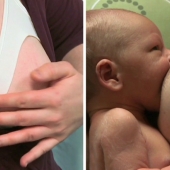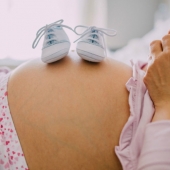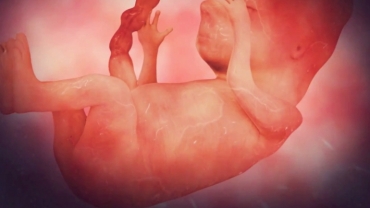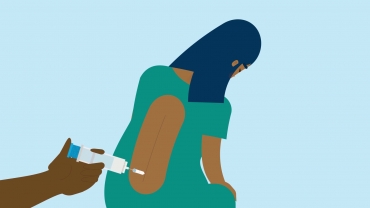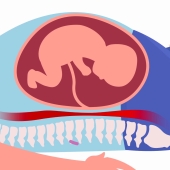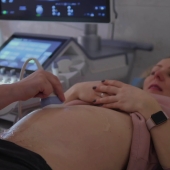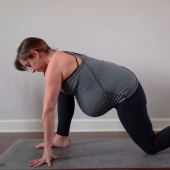We recommend that you are vaccinated against whooping cough and flu when you are pregnant to protect yourself and your baby. This video will explain why and when you should have the vaccinations.
Vaccinations, also known as an immunisation or jab, are given to protect against dangerous infections. The vaccination contains a small amount of the virus or bacteria which causes the disease you are being protected against. When this is injected into your body, your immune system produces something called ‘antibodies’ which are small molecules that fight the virus or bacteria.
The antibodies remain in your body ready to fight the infection if you ever come into contact with the real illness, stopping you from becoming ill. These disease-fighting antibodies can pass from you to your baby through the placenta.
This is important as it protects your baby in the first few months of their life, before their own immune system starts to work properly, and before they have had their first jabs. Both of the vaccines are made so that they cannot cause whooping cough or influenza. They have been carefully studied by experts and are safe for you and your unborn baby.
Whooping cough:
Whooping cough is a highly infectious bacterial infection which causes a cough that sounds like a whoop, and choking. It can lead to pneumonia and permanent brain damage, especially in young babies. There are even cases of people dying from the disease.
Over recent years the infection has become more common which is why we think you should be vaccinated against it. We recommend that you have the vaccination between 20 and 38 weeks of your pregnancy and you should have it even if you have had whooping cough or the vaccination before.
It is preferred that you have this as early as possible to give time for the antibodies to form. As we cannot give a vaccination that only protects against whooping cough, you will be given a combination vaccination which also protects you against tetanus, diphtheria and polio. All of these are safe for you to have when you are pregnant.
Influenza:
Influenza, more commonly known as ‘flu, is a viral infection. Anyone can get flu, but if you get it when you are pregnant, you are much more likely to develop complications. For example, you may get bronchitis which is a chest infection that can develop into pneumonia. In rare cases this can lead to death.
Other complications include middle ear infections, septic shock, meningitis and swelling of the brain, but fortunately these are not as common. Catching the flu in pregnancy can also threaten your baby. Possible complications include your baby being born too early, still birth, or death in the first few weeks of life.
You should have the flu vaccination as early as you can in your pregnancy as it is the best way to protect you and your baby from flu. The vaccination is only available between September and early February every year. This means different women will have it at different times in their pregnancy, depending on when they became pregnant. It is available at your GP surgery and at some pharmacies.
The vaccine changes every year, so even if you have had it before, you must have it again. It is safe to have both the whooping cough and flu vaccinations on the same day, but do not delay getting your flu jab just to be able to have both at the same time.
As with all vaccinations you may have some side effects such as swelling, redness and tenderness of your upper arm where the vaccination is injected. This will only last for a few days. Other possible side effects include fever, irritation, swelling of the entire arm, loss of appetite, irritability and headache, although these are less common.
If you have any questions about these vaccinations, please speak to your midwife or GP, or look at the NHS choices website for more information. Both of the vaccinations are free; and all you need to do is make an appointment at your GP surgery.
- 628 views

